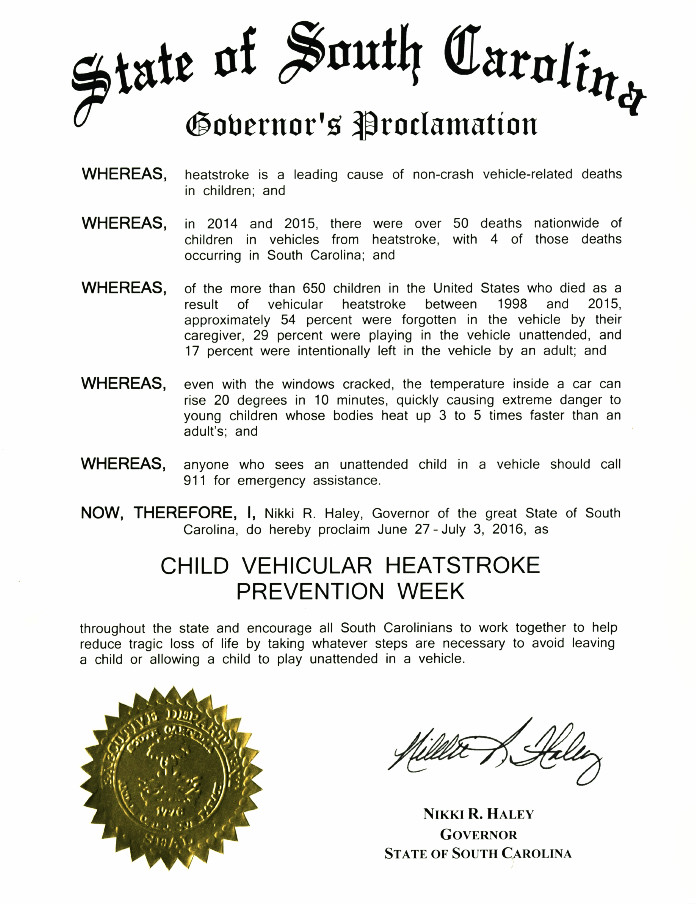Katrin Burns, the Safe Kids South Carolina associate for Children’s Trust, wants to make sure no children in our state suffer heatstroke-related death or injury this summer. She highlights the things all individuals can do to make this a reality.
Summer’s hottest days are here, which means parents and caregivers should remain vigilant to ensure that no child ever be left alone in a hot car. To emphasize the importance of this safety issue, Gov. Nikki Haley has proclaimed the week of June 27 to July 3 as Child Vehicular Heatstroke Prevention Week.

2016 Child Vehicular Heatstroke Prevention Week Proclamation
Children’s Trust, home to Safe Kids South Carolina, wants to remind parents that babies and young kids can sleep so peacefully that it can be easy to forget they’re in the car with you. Children also can get into a vehicle while playing on their own and become trapped.
Or it might seem OK to run a quick errand inside a store while they stay in the car. It’s not.
Leaving a child alone in a car can lead to serious injury or death from heatstroke. Young children are especially susceptible because their bodies heat up three to five times faster than an adult’s.
Let’s all work together to keep kids safe from this very preventable tragedy, which is the leading cause of non-crash, vehicle-related deaths for children. From 1998 to this year, 676 children across the United States have died from heatstroke when left in a vehicle, including 15 so far this year.
It’s time to ACT
Here are tips from Safe Kids Worldwide and Children’s Trust:
Avoid heatstroke-related injury and death
Never leave your child alone in a car, not even for a minute. And make sure to keep your car locked when you’re not in it so kids don’t get in on their own.
Create reminders
Put something in the back of your car next to your child such as a briefcase, a purse or a cell phone that is needed at your final destination. This is especially important if you’re not following your normal routine.
Take action
If you see a child alone in a car, call 911. Emergency personnel want you to call. They are trained to respond to these situations. One call could save a life.





